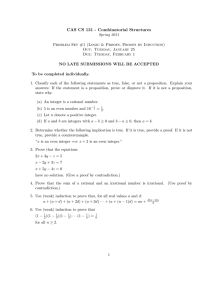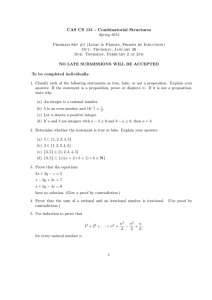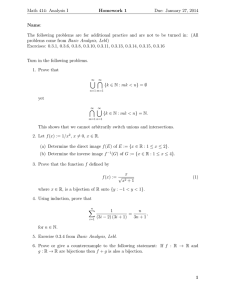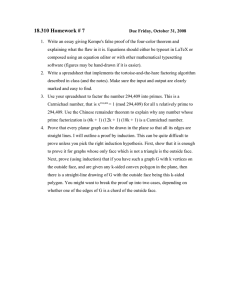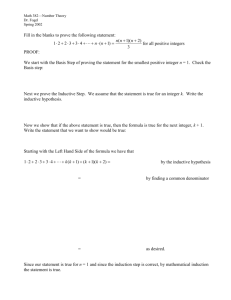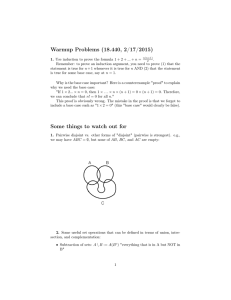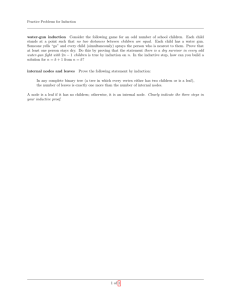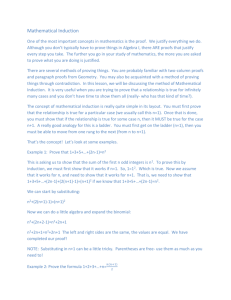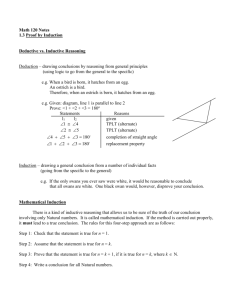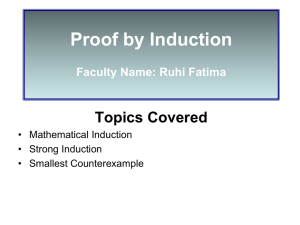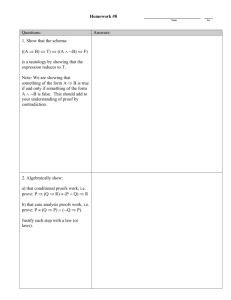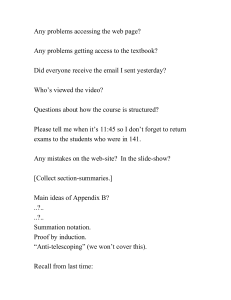Weeks 13-14
advertisement
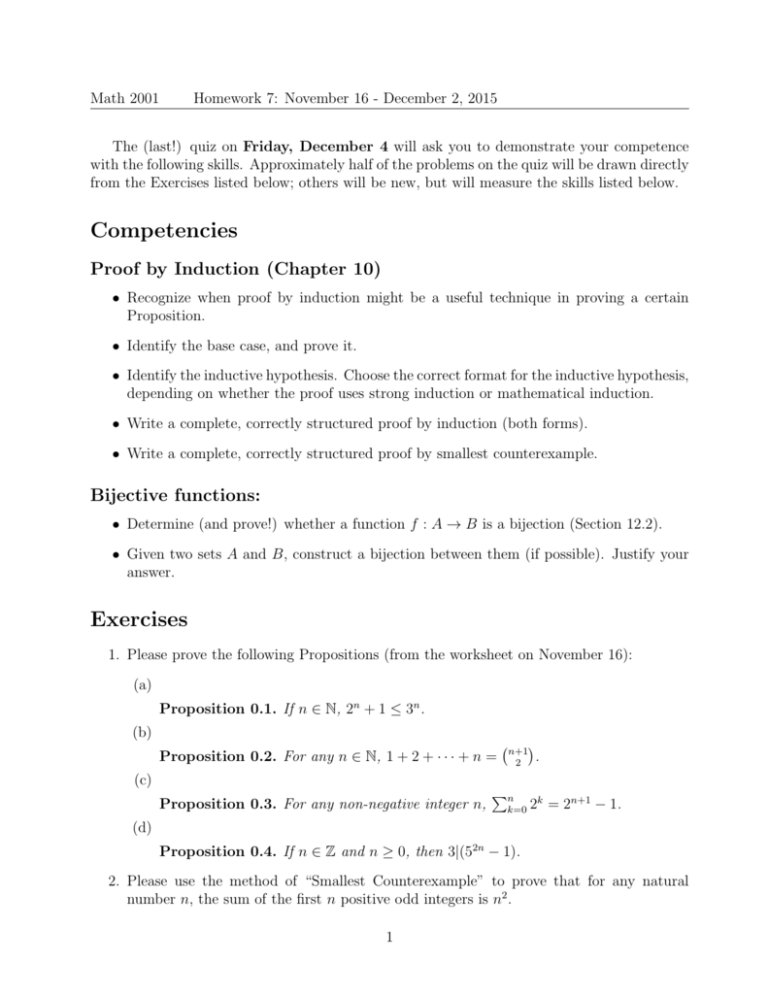
Math 2001
Homework 7: November 16 - December 2, 2015
The (last!) quiz on Friday, December 4 will ask you to demonstrate your competence
with the following skills. Approximately half of the problems on the quiz will be drawn directly
from the Exercises listed below; others will be new, but will measure the skills listed below.
Competencies
Proof by Induction (Chapter 10)
• Recognize when proof by induction might be a useful technique in proving a certain
Proposition.
• Identify the base case, and prove it.
• Identify the inductive hypothesis. Choose the correct format for the inductive hypothesis,
depending on whether the proof uses strong induction or mathematical induction.
• Write a complete, correctly structured proof by induction (both forms).
• Write a complete, correctly structured proof by smallest counterexample.
Bijective functions:
• Determine (and prove!) whether a function f : A → B is a bijection (Section 12.2).
• Given two sets A and B, construct a bijection between them (if possible). Justify your
answer.
Exercises
1. Please prove the following Propositions (from the worksheet on November 16):
(a)
Proposition 0.1. If n ∈ N, 2n + 1 ≤ 3n .
(b)
Proposition 0.2. For any n ∈ N, 1 + 2 + · · · + n =
n+1
2
.
(c)
Proposition 0.3. For any non-negative integer n,
Pn
k=0
2k = 2n+1 − 1.
(d)
Proposition 0.4. If n ∈ Z and n ≥ 0, then 3|(52n − 1).
2. Please use the method of “Smallest Counterexample” to prove that for any natural
number n, the sum of the first n positive odd integers is n2 .
1
Math 2001
Homework 7: November 16 - December 2, 2015
3. Please use strong induction to prove that, for every natural number n, you can write n as
the sum of distinct powers of 2. (That is, 21 = 1 + 4 + 16 is an allowable decomposition,
but 21 = 1 + 2 + 2 + 16 is not, since 2 shows up twice in the sum.)
4. Please use the method of “Smallest Counterexample” to prove that for all integers n ≥ 5,
we have 2n > n2 .
5. For any n ∈ N, let
An = {d ∈ N : d|n and d <
√
n};
Bn = {d ∈ N : d|n and d >
√
n}.
(a) Please find a bijection f : An → Bn . Make sure that you prove that f is both
injective and surjective!
(b) Please prove that a positive integer n has an odd number of divisors if and only if
n = b2 for some integer b.
2
